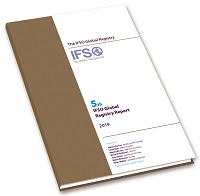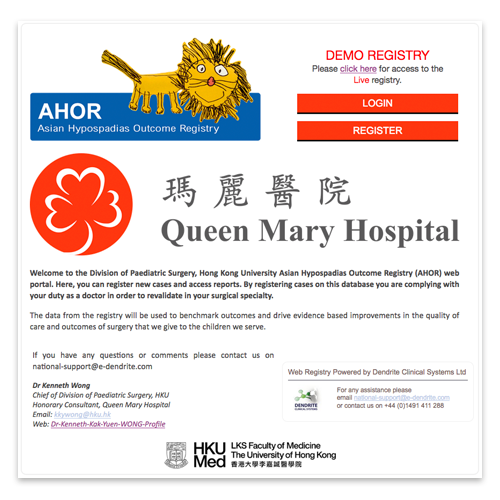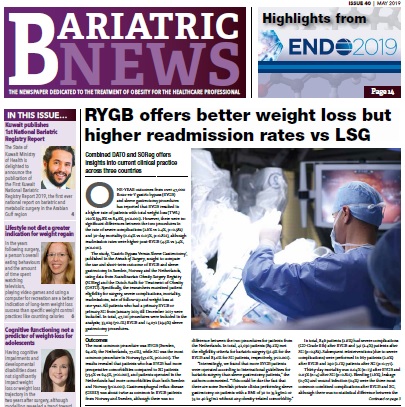Dendrite enters international ‘CoviDiab’ collaborative research initiative
 Dendrite Clinical Systems’ innovative “Intellect Web” software has been chosen by an international group of 17 leading diabetes experts from the multidisciplinary Diabetes Surgery Summit (DSS), as the platform on which the CoviDiab project will establish a Global Registry to collect new cases of diabetes in patients with COVID-19. The aim of the CoviDiab Registry is to understand the extent and the characteristics of the manifestations of diabetes in patients with COVID-19, and the best strategies for the treatment and monitoring of affected patients, during and after the pandemic.
Dendrite Clinical Systems’ innovative “Intellect Web” software has been chosen by an international group of 17 leading diabetes experts from the multidisciplinary Diabetes Surgery Summit (DSS), as the platform on which the CoviDiab project will establish a Global Registry to collect new cases of diabetes in patients with COVID-19. The aim of the CoviDiab Registry is to understand the extent and the characteristics of the manifestations of diabetes in patients with COVID-19, and the best strategies for the treatment and monitoring of affected patients, during and after the pandemic.
“We are honoured that the CoviDiab Investigators have chosen our International Web-Registry software platform for this important project,” said Dr Peter Walton, Managing Director of Dendrite Clinical Systems. “This is just one of several COVID-19 registries we are developing in conjunction with teams of international researchers all over the world. As a company, we are proud to be playing a key role in helping to combat this devastating disease.”
“Diabetes is one of the most prevalent chronic diseases and we are now realising the consequences of the inevitable clash between two pandemics,” said Professor Francesco Rubino, Professor of Metabolic Surgery at the School of Life Course Sciences, King’s College London, UK and co-lead investigator of the CoviDiab project. “Given the short period of human contact with this new coronavirus, the exact mechanism by which the virus influences glucose metabolism is still unclear and we don’t know whether the acute manifestation of diabetes in these patients represent classic type 1, type 2 or possibly a new form of diabetes.”
The registry, which will be expanded to include patients with pre-existing diabetes who present with severe acute metabolic disturbance, may also be used to investigate the epidemiologic features and pathogenesis of Covid-19–related diabetes and to gain clues regarding appropriate care for patients during and after the course of Covid-19.
“We don’t yet know the magnitude of the new onset diabetes in COVID-19 and if it will persist or resolve after the infection; and if so, whether or not or COVID-19 increases risk of future diabetes,” explained Paul Zimmet, Professor of Diabetes at Monash University in Melbourne, Honorary President of the International Diabetes Federation and co-lead investigator in the CoviDiab project. “By establishing this Global Registry, we are calling on the international medical community to rapidly share relevant clinical observations that can help answer these questions.”
The CoviDiab Registry will be launched in the coming months. For more information, please click here
 The Fifth IFSO Global Registry Report (2019) has been released at the XXIV World Congress of the International Federation for the Surgery of Obesity and Metabolic Disorders (IFSO) in Madrid, Spain. Published by Dendrite Clinical Systems, under the auspices of the IFSO, the publication reports data from more than 60 countries on over 833,000 operations including baseline obesity-related disease, operation types, operative outcomes and disease status after bariatric surgery.
The Fifth IFSO Global Registry Report (2019) has been released at the XXIV World Congress of the International Federation for the Surgery of Obesity and Metabolic Disorders (IFSO) in Madrid, Spain. Published by Dendrite Clinical Systems, under the auspices of the IFSO, the publication reports data from more than 60 countries on over 833,000 operations including baseline obesity-related disease, operation types, operative outcomes and disease status after bariatric surgery. Dendrite Clinical Systems has announced the installation of its National Bariatric Surgical Registry software at the Sheik Al Jaber Al Sabah Hospital, in Kuwait. The Sheik Al Jaber Al Sabah Hospital, opened by His Highness the Amir Sheikh Sabah Al-Ahmad Al- Jaber Al-Sabah in November 2018, consists of five towering 10-stories structures built on a 220,000 square meters and has a hospital bed capacity of around 1,160 with 36 operation rooms, a medical centre, a helipad and a parking lot accommodating some 5,000 vehicles.
Dendrite Clinical Systems has announced the installation of its National Bariatric Surgical Registry software at the Sheik Al Jaber Al Sabah Hospital, in Kuwait. The Sheik Al Jaber Al Sabah Hospital, opened by His Highness the Amir Sheikh Sabah Al-Ahmad Al- Jaber Al-Sabah in November 2018, consists of five towering 10-stories structures built on a 220,000 square meters and has a hospital bed capacity of around 1,160 with 36 operation rooms, a medical centre, a helipad and a parking lot accommodating some 5,000 vehicles. Dendrite Clinical Systems and the Queen Mary Hospital in Hong Kong have launched the Asian Hypospadias Outcome Registry (AHOR), is a prospective web-based patient registry that will collect, record and analyse the treatment and outcomes of patients undergoing surgical repair.
Dendrite Clinical Systems and the Queen Mary Hospital in Hong Kong have launched the Asian Hypospadias Outcome Registry (AHOR), is a prospective web-based patient registry that will collect, record and analyse the treatment and outcomes of patients undergoing surgical repair. Dendrite Clinical Systems has launched its ‘One-button push’ outcomes module, allowing clinicians to instantly produce their outcomes with the push of a single button. This enhancement is the latest in a series of advances incorporated into the company’s clinical registry software.
Dendrite Clinical Systems has launched its ‘One-button push’ outcomes module, allowing clinicians to instantly produce their outcomes with the push of a single button. This enhancement is the latest in a series of advances incorporated into the company’s clinical registry software. Dendrite Clinical Systems, the publisher of Bariatric News, is pleased to announce issue 40 of the newspaper is now available to view/download. The newspaper reports on research, technology, events and policy in the bariatric specialty, the latest clinical studies, policy changes and product news, the latest meetings and events, interviews prominent bariatric experts, and host debates between specialists on controversial topics.
Dendrite Clinical Systems, the publisher of Bariatric News, is pleased to announce issue 40 of the newspaper is now available to view/download. The newspaper reports on research, technology, events and policy in the bariatric specialty, the latest clinical studies, policy changes and product news, the latest meetings and events, interviews prominent bariatric experts, and host debates between specialists on controversial topics. Dendrite Clinical Systems – in collaboration with Haemotology Cancer Care (UCLH Charity), the Royal Free Charity, HaemSTAR (an organisation researching non-malignant haematology) and MPN Voice – have launched the MASCOT (Myeloproliferative Neoplasm Splanchnic Vein Thrombosis, MPN-SVT) Registry, a UK wide registry for patients with myeloproliferative diseases suffering from splanchnic or abdominal vein thrombosis.
Dendrite Clinical Systems – in collaboration with Haemotology Cancer Care (UCLH Charity), the Royal Free Charity, HaemSTAR (an organisation researching non-malignant haematology) and MPN Voice – have launched the MASCOT (Myeloproliferative Neoplasm Splanchnic Vein Thrombosis, MPN-SVT) Registry, a UK wide registry for patients with myeloproliferative diseases suffering from splanchnic or abdominal vein thrombosis.


